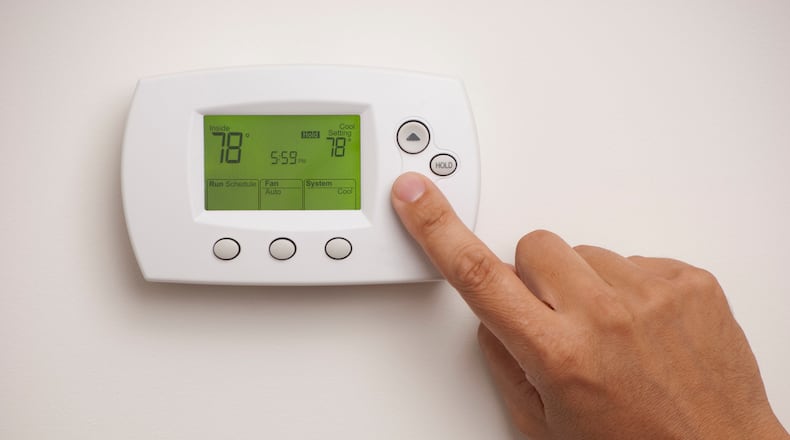“A common misconception associated with thermostats is that a furnace works harder than normal to warm the space back to a comfortable temperature after the thermostat has been set back, resulting in little or no savings. In fact, as soon as your house drops below its normal temperature, it will lose energy to the surrounding environment more slowly,” states the Dept. of Energy.
For the summer, National Grid, an electric and gas distributor, suggests the minimum recommended temperature for energy efficiency is 78 degrees.
“A room cooled to 75 degrees costs 18 percent more than one cooled to 78 degrees,” National Grid reports.
The U.S. Dept. of Energy agrees:
“In the summer, set your thermostat to 78 degrees when the work place is occupied, and 85 degrees or off after business hours,” a Dept. of Energy online report states. “In the winter, set your thermostat to 68 degrees when the work place is occupied, and 60-65 degrees or off after business hours. You can save up to 3% for each degree the thermostat is raised in the summer and lowered in the winter. Using ceiling or room fans improves air circulation.
It offers these no-cost tips:
- Reduce your lighting. A general rule is that a light should be off when no one is present. Turn off lights in unoccupied areas, remove excess lighting and turn off signage and other lights not necessary for security and safety.
- Be energy smart with office equipment. Turn off office equipment or set it to “power down” when not in use. Setting computers, monitors, and copiers to use sleep-mode when not in use helps cut energy costs by approximately 40%. Remember to turn equipment off at the end of the workday.
- Use shades and blinds. On hot days, draw the curtains and/or shades to keep the sun out. Remember to close doors to the outside to keep in cooler air.
For larger buildings, such as schools, it is recommended to use sensors and timers to control efficiency at various times of day, following occupancy patterns. The Dept. of Energy also suggests updating ventilation.
Information from Clark.com was used in this report.
About the Author
